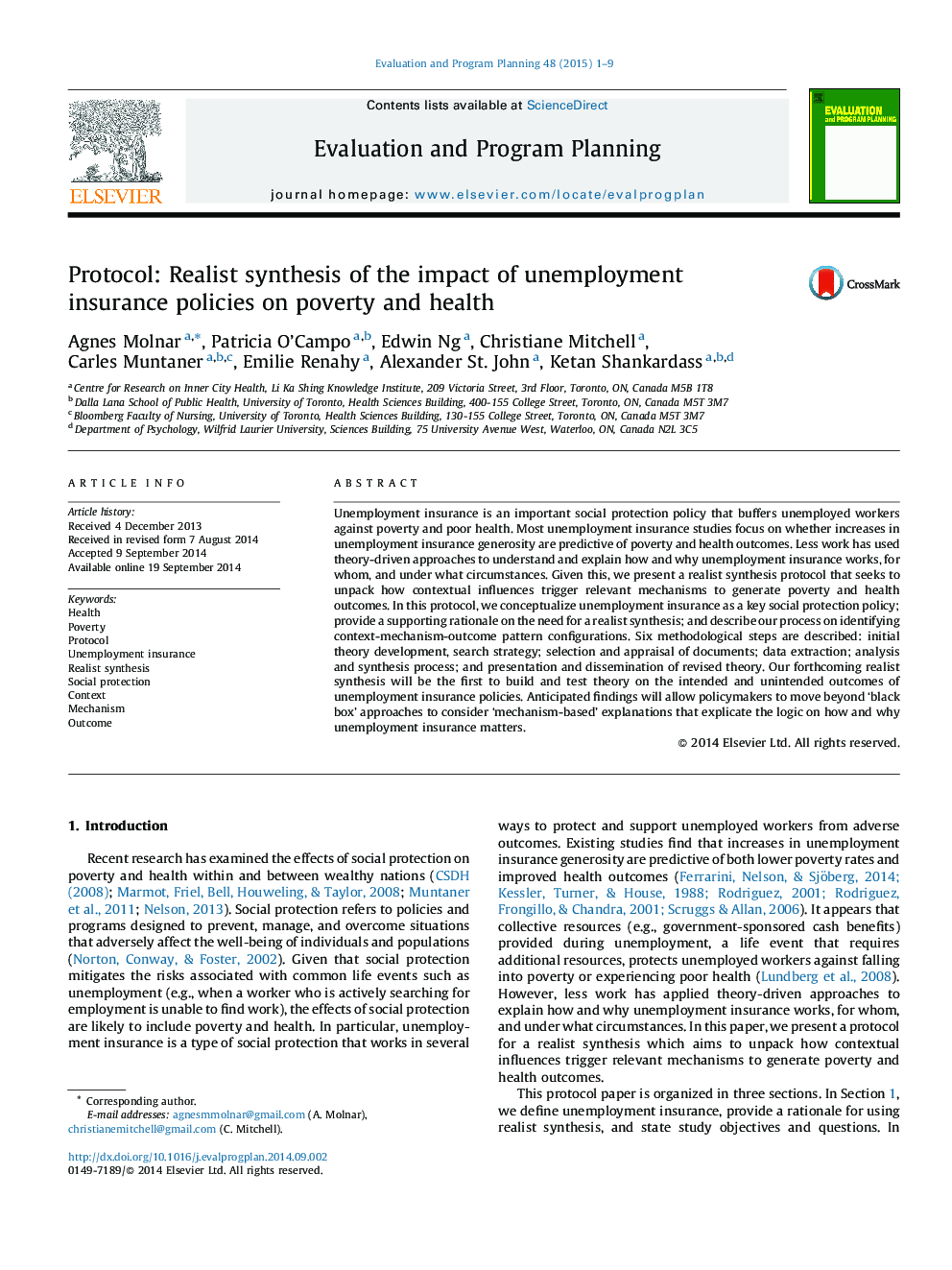| Article ID | Journal | Published Year | Pages | File Type |
|---|---|---|---|---|
| 6793388 | Evaluation and Program Planning | 2015 | 9 Pages |
Abstract
Unemployment insurance is an important social protection policy that buffers unemployed workers against poverty and poor health. Most unemployment insurance studies focus on whether increases in unemployment insurance generosity are predictive of poverty and health outcomes. Less work has used theory-driven approaches to understand and explain how and why unemployment insurance works, for whom, and under what circumstances. Given this, we present a realist synthesis protocol that seeks to unpack how contextual influences trigger relevant mechanisms to generate poverty and health outcomes. In this protocol, we conceptualize unemployment insurance as a key social protection policy; provide a supporting rationale on the need for a realist synthesis; and describe our process on identifying context-mechanism-outcome pattern configurations. Six methodological steps are described: initial theory development, search strategy; selection and appraisal of documents; data extraction; analysis and synthesis process; and presentation and dissemination of revised theory. Our forthcoming realist synthesis will be the first to build and test theory on the intended and unintended outcomes of unemployment insurance policies. Anticipated findings will allow policymakers to move beyond 'black box' approaches to consider 'mechanism-based' explanations that explicate the logic on how and why unemployment insurance matters.
Keywords
Related Topics
Health Sciences
Medicine and Dentistry
Public Health and Health Policy
Authors
Agnes Molnar, Patricia O'Campo, Edwin Ng, Christiane Mitchell, Carles Muntaner, Emilie Renahy, Alexander St. John, Ketan Shankardass,
